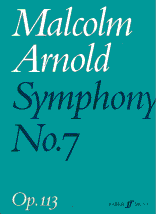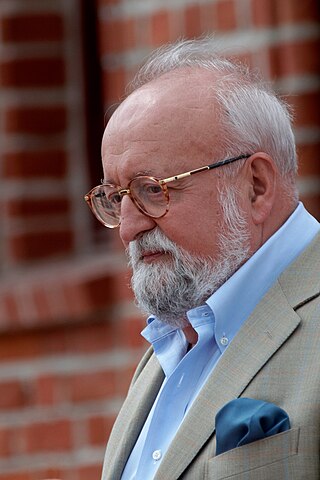Related Research Articles

Isobel Gowdie was a Scottish woman who confessed to witchcraft at Auldearn near Nairn during 1662. Scant information is available about her age or life and, although she was probably executed in line with the usual practice, it is uncertain whether this was the case or if she was allowed to return to the obscurity of her former life as a cottar’s wife. Her detailed testimony, apparently achieved without the use of violent torture, provides one of the most comprehensive insights into European witchcraft folklore at the end of the era of witch-hunts.
Roman Festivals, P 157 is a tone poem in four movements for orchestra completed in 1928 by the Italian composer Ottorino Respighi. It is the last of his three tone poems about Rome, following Fountains of Rome (1916) and Pines of Rome (1924), which he referred to as a triptych. Each movement depicts a scene of celebration in ancient and contemporary Rome, specifically gladiators battling to the death, the Christian Jubilee, a harvest and hunt festival, and a festival in the Piazza Navona. Musically, the piece is the longest and most demanding of Respighi's Roman trilogy.
Lollapalooza is a short piece composed by American minimalist composer John Adams in 1995. The piece is based on the rhythm of the word 'Lollapalooza'. It was composed as a fortieth birthday present to the British conductor Simon Rattle, with whom Adams has worked in the past.

The Miraculous Mandarin Op. 19, Sz. 73, is a one act pantomime ballet composed by Béla Bartók between 1918 and 1924, and based on the 1916 story by Melchior Lengyel. Premiered on 27 November 1926 conducted by Eugen Szenkar at the Cologne Opera, Germany, it caused a scandal and was subsequently banned on moral grounds. Although more successful at its Prague premiere, it was generally performed during the rest of Bartók's life in the form of a concert suite, which preserves about two-thirds of the original pantomime's music.
The Bachianas Brasileiras are a series of nine suites by the Brazilian composer Heitor Villa-Lobos, written for various combinations of instruments and voices between 1930 and 1945. They represent a fusion of Brazilian folk and popular music on the one hand and the style of Johann Sebastian Bach on the other, as an attempt to freely adapt a number of Baroque harmonic and contrapuntal procedures to Brazilian music. Most of the movements in each suite have two titles: one "Bachian", the other Brazilian.
Witold Lutosławski wrote his Symphony No. 3 in 1973–1983. The Chicago Symphony Orchestra, conducted by Georg Solti, gave the world premiere on 29 September 1983.

The Symphony No. 7, Op. 113 by Malcolm Arnold was finished in 1973. It is in three movements:
The Concerto Fantasy for Two Timpanists and Orchestra is a double timpani concerto written by Philip Glass in 2000. It is paired with the Cello Concerto on Vol. I of Glass' Concerto Project, a set of eight concerti by the composer. A typical performance of the work lasts 25–28 minutes. It was written for Jonathan Haas and later recorded by Evelyn Glennie, and was premiered by Haas and Svet Stoyanov with the American Symphony Orchestra in Avery Fisher Hall, Lincoln Center, conducted by Leon Botstein. The work was commissioned jointly by the American Symphony Orchestra, the Peabody Symphony, the Milwaukee Symphony, the St. Louis Symphony and the Phoenix Symphony. In 2004, a transcription for wind ensemble was written by Mark Lortz, which debuted at Peabody Institute in 2005.

The Symphony No. 1 by Polish composer Krzysztof Penderecki was composed in 1973. It was published by Polish Music Publishing House and Schott Music and has never been expanded or revised.
Foreign Bodies is an orchestral composition in three movements by the Finnish composer Esa-Pekka Salonen. The work was commissioned by the Finnish Broadcasting Company and was first performed at the Schleswig-Holstein Musik Festival on August 12, 2001 by the Finnish Radio Symphony Orchestra under the conductor Jukka-Pekka Saraste.
The Percussion Concerto No. 2 is a concerto for solo percussion and orchestra by the Scottish composer James MacMillan. The work was jointly commissioned by the Netherlands Radio Philharmonic, the Philharmonia Orchestra, the Orchestre national du Capitole de Toulouse, the Cabrillo Festival of Contemporary Music, the Baltimore Symphony Orchestra, and the São Paulo State Symphony. It was first performed on November 7, 2014 at TivoliVredenburg in Utrecht, the Netherlands, by percussionist Colin Currie and the Netherlands Radio Philharmonic under conductor James Gaffigan. The composition is MacMillan's second percussion concerto after 1992's Veni, Veni, Emmanuel.

The Great War Symphony is a choral symphony by the British composer Patrick Hawes written to commemorate the centenary of the First World War.
The Symphony No. 3 is the third symphony by the Scottish composer James MacMillan. The piece was first performed on April 17, 2003 in NHK Hall, Tokyo, by the NHK Symphony Orchestra under the conductor Charles Dutoit.
A Symphony of Three Orchestras is an orchestra composition by the American composer Elliott Carter. The work was commissioned by the New York Philharmonic through a grant from the National Endowment for the Arts. It was composed from June through December 1976 and was first performed in New York City on February 17, 1977 by the New York Philharmonic under the conductor Pierre Boulez. The composition is dedicated to Boulez and the New York Philharmonic.

Symphony No. 4, "A Vitória" (Victory) is a composition by the Brazilian composer Heitor Villa-Lobos, written in 1919. A recording conducted by the composer lasts just over thirty minutes.
The World's Ransoming is a concerto for cor anglais and orchestra by the Scottish composer James MacMillan. It was the first of three interrelated compositions in MacMillan's Easter triptych Triduum commissioned by the London Symphony Orchestra. Its world premiere was given by the soloist Christine Pendrill and the London Symphony Orchestra under the direction of Kent Nagano at the Barbican Centre on 11 July 1996.
The Symphony No. 1, Op. 24, is an orchestral composition by the Finnish composer Aulis Sallinen, who began writing the piece in 1970 when the City of Helsinki announced a composers' competition to mark the inauguration of Finlandia Hall. Completing the symphony in 1971, Sallinen was awarded First Prize in the contest; the Helsinki Philharmonic Orchestra and its music director, Jorma Panula, premiered the work at Finlandia Hall during the 2 December inaugural festivities.
The Requiem by the Hungarian composer György Ligeti is a large-scale choral and orchestral composition, composed between 1963 and 1965.
The Concerto for Violin and Orchestra "Eleven Eleven" is the first violin concerto written by American composer Danny Elfman. Co-commissioned by the Czech National Symphony Orchestra, Stanford Live at Stanford University, and the Royal Scottish National Orchestra, the piece premiered at Smetana Hall in Prague, on June 21, 2017, with Sandy Cameron on violin and John Mauceri conducting the Czech National Symphony Orchestra. In 2019, the premiere recording of the concerto featured Cameron with Mauceri conducting the Royal Scottish National Orchestra.
References
- ↑ Callow, John (2007), "Gowdie, Isobel (fl. 1662)" , Oxford Dictionary of National Biography (online ed.), Oxford University Press, doi:10.1093/ref:odnb/67741 , retrieved 18 March 2017(Subscription or UK public library membership required.)
- 1 2 Johnson, Stephen. Liner notes for BIS recording of The Confession of Isobel Gowdie, 2002
- ↑ "Boosey & Hawkes Composers, Classical Music and Jazz Repertoire".